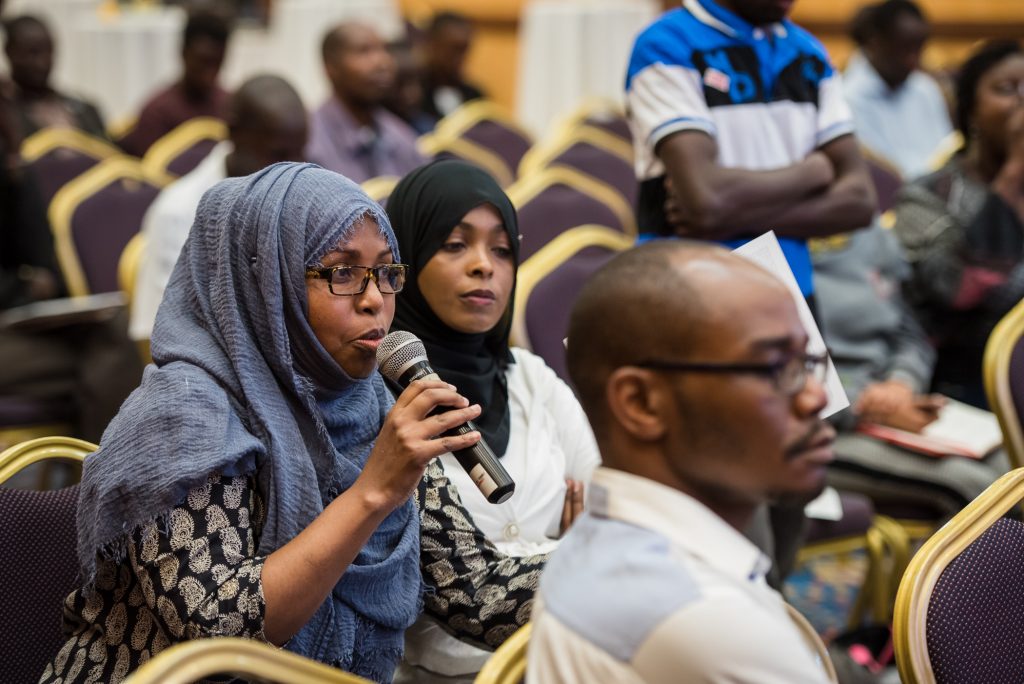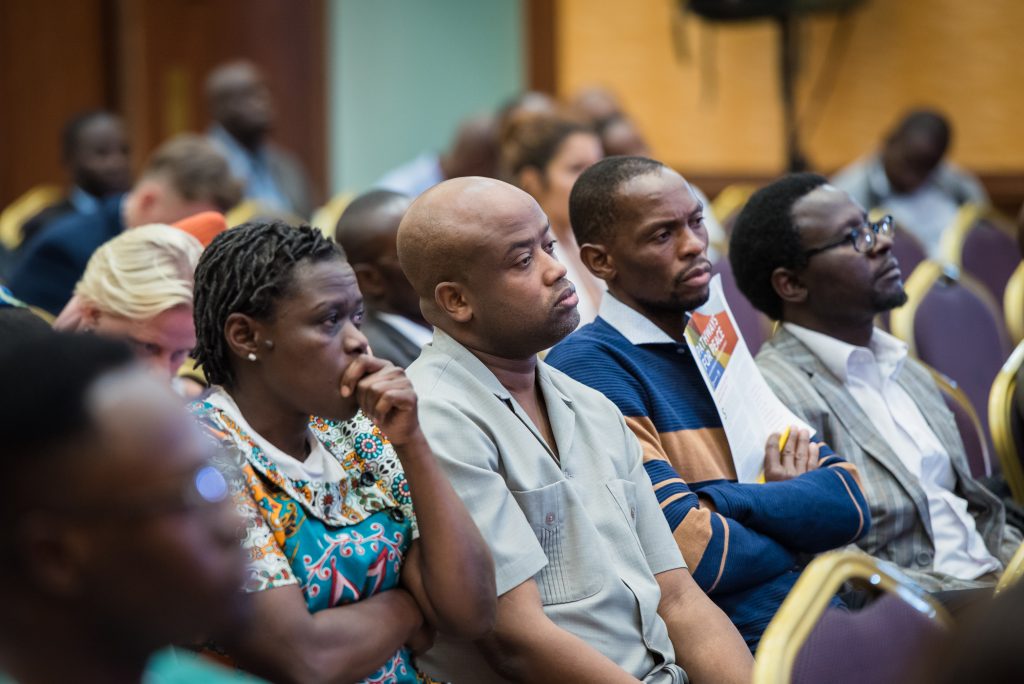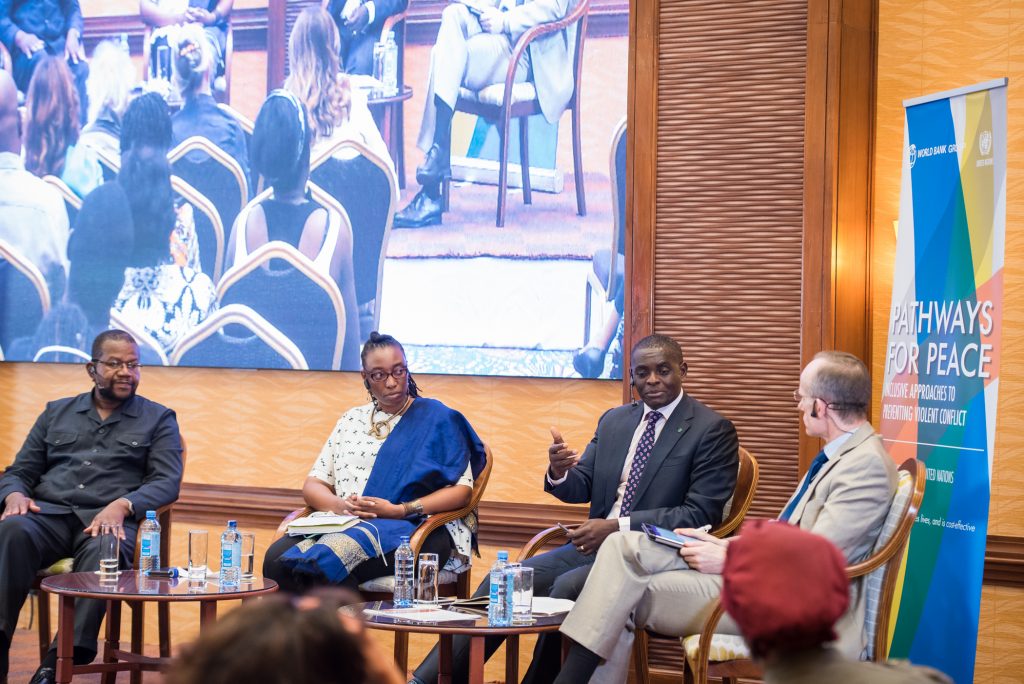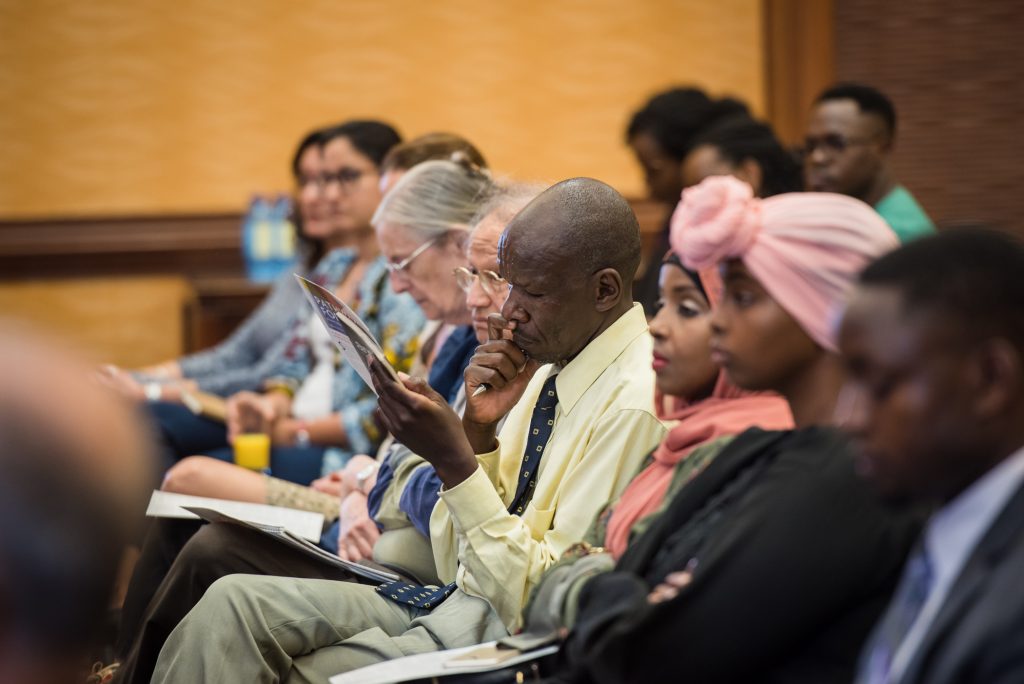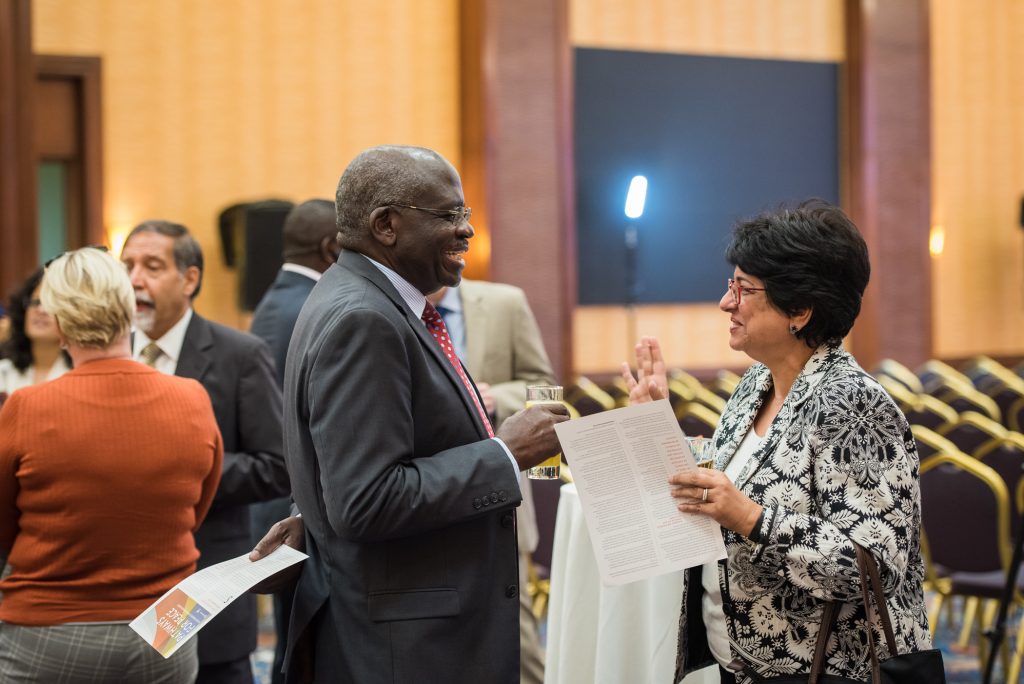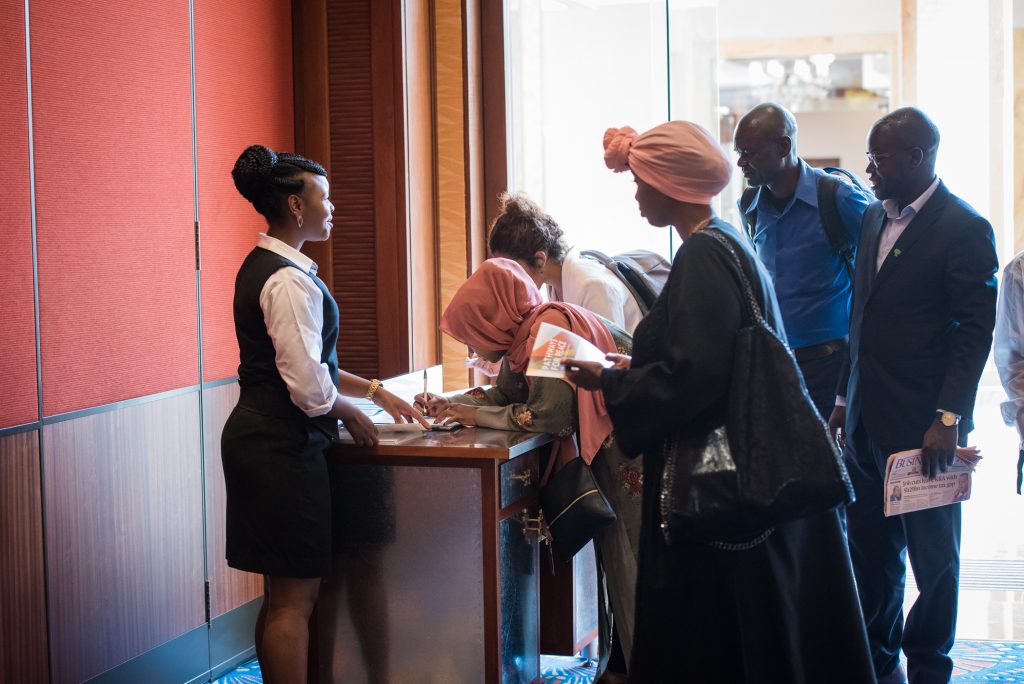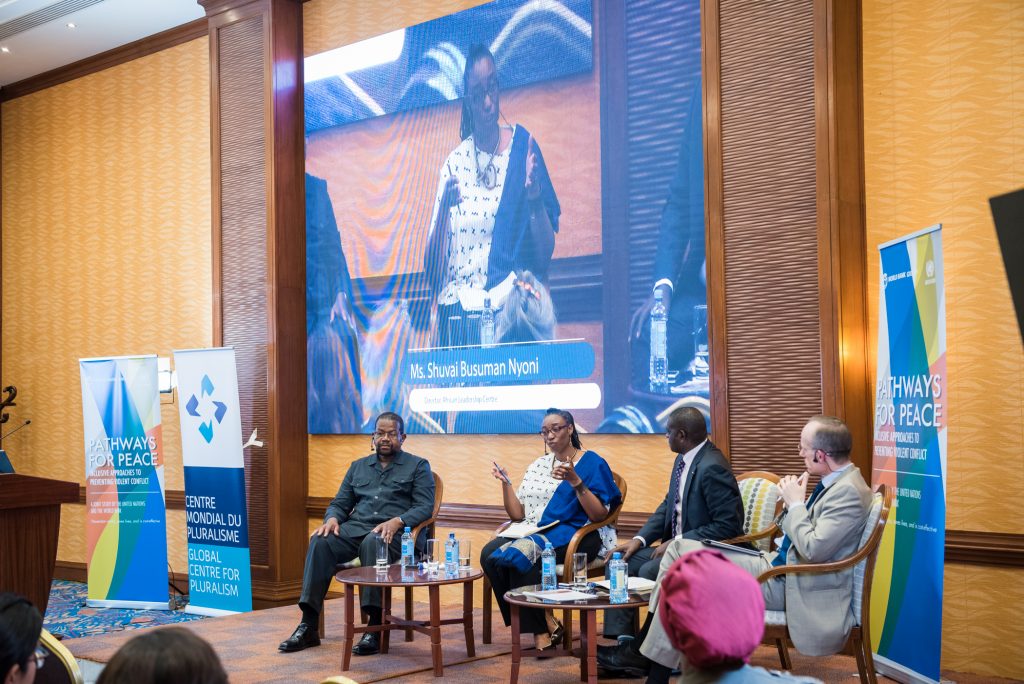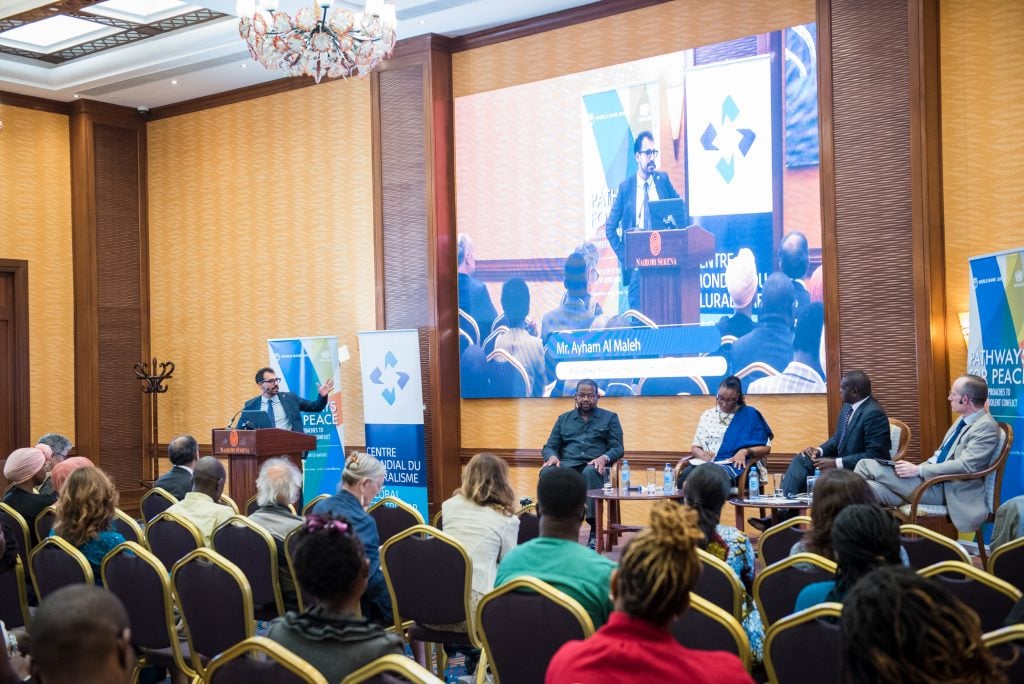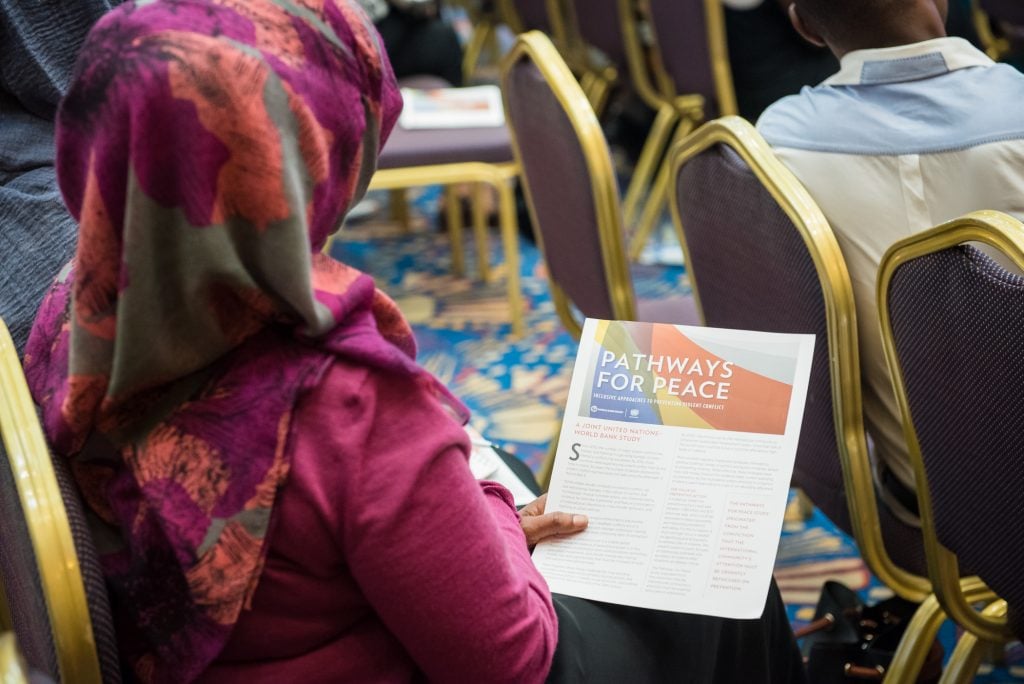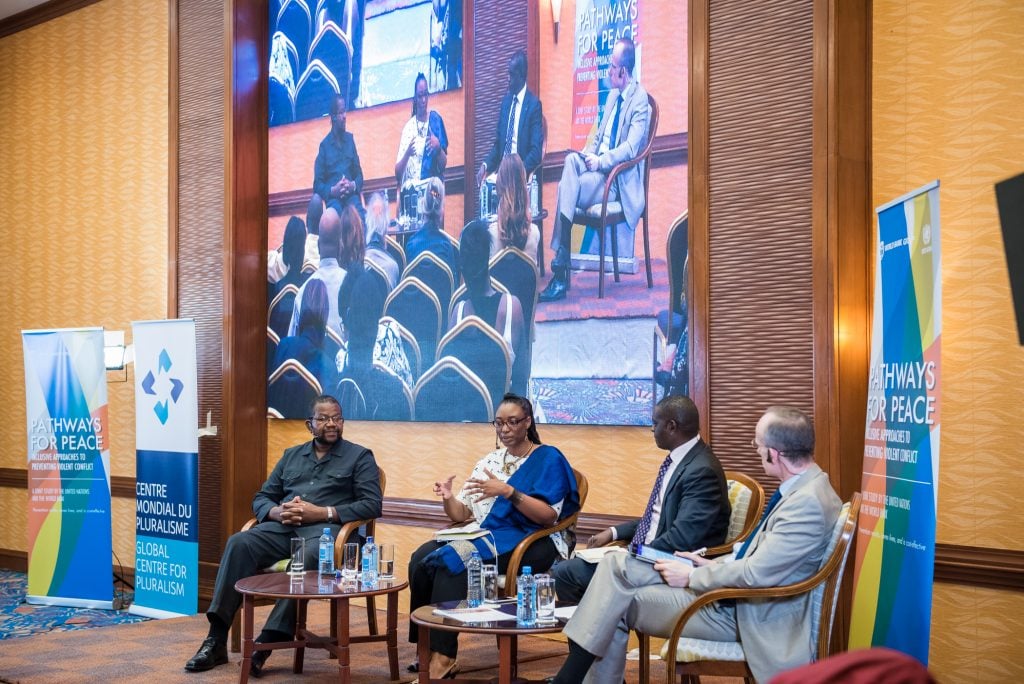Pathways for Peace: Inclusive Approaches to Preventing Violent Conflict
On September 11, 2018, the Global Centre for Pluralism, UN and World Bank presented the Kenyan launch of the joint UN/World Bank report Pathways for Peace: Inclusive Approaches to Preventing Violent Conflict. This major, first-of-its-kind study originated from the fact that all too often both national and international actors are more focused on addressing outbreaks and escalations of violence after situations are already critical, rather than directing vital efforts and resources to prevent violence and conflict before it occurs.
Drawing on numerous country case studies from around the world, including Kenya, Pathways for Peace explores the key role of inclusion in conflict prevention efforts, and emphasizes the importance of understanding the role played by horizontal inequalities, historical grievances and group-based dynamics when analyzing and addressing possible conflict situations.
The importance of up-stream prevention and the need to conceptualize new tools and new analytical approaches to assist in identifying and mitigating drivers of conflict before it starts is a key feature of the Pathways report. The analysis makes a case for placing prevention at the centre of development and inclusion efforts and provides clear recommendations for both national and international actors on effective strategies to prevent violent conflicts.
The launch event in Nairobi brought together the lead authors of the report along with experts from a range of fields to offer a Kenyan perspective on the challenges and successes of development, inclusion and conflict prevention. The panel explored what insights from the report are most relevant for Kenya’s future efforts on conflict prevention and inclusion. An interactive Q&A session with the audience followed the panel discussion.
The full report can be accessed here.
This event was a partnership with the International Development Research Centre.




